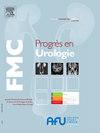Le traitement focal du cancer de la prostate en 2024
Q4 Medicine
引用次数: 0
Abstract
La thérapie focale (TF) est une option thérapeutique en cours d’évaluation, envisageable chez des patients sélectionnés ayant un cancer de prostate (CaP) localisé. La TF peut être une alternative aux traitements responsables, souvent d’effets secondaires tels que l’incontinence urinaire ou la dysfonction érectile. Son objectif sera de détruire électivement une zone cible tout en préservant le parenchyme prostatique sain afin de limiter l’impact fonctionnel du traitement tout en garantissant des résultats oncologiques satisfaisants. Ce traitement s’adresse à des patients présentant un CaP d’agressivité intermédiaire et doit être pratiqué dans le cadre d’un essai thérapeutique ou d’un registre prospectif de recueil de données. La TF permet ainsi de mieux adapter le traitement aux caractéristiques du CaP et aux souhaits du patient dans une démarche de soin personnalisée.
Focal therapy (FT) represents a therapeutic option under evaluation for selected patients with localized prostate cancer (PCa). It emerges as a potential alternative to conventional treatments that are frequently associated with side effects such as urinary incontinence or erectile dysfunction. The primary aim of FT is the selective ablation of targeted areas while conserving the surrounding healthy prostatic parenchyma, thereby minimizing the functional impact of the treatment while ensuring satisfactory oncologic outcomes. This approach is tailored for patients with intermediate-risk PCa and should be undertaken within the context of a clinical trial or a prospective data registry. Thus, FT allows for a more nuanced treatment adaptation to the specific features of the PCa and the patient's preferences, fostering a personalized care strategy.
2024 年前列腺癌的病灶治疗
局部治疗(TF)是一种正在评估的治疗选择,可用于选定的局部前列腺癌(PCA)患者。TF可以作为负责任的治疗的替代,通常会有副作用,如尿失禁或勃起功能障碍。其目的是选择性地破坏靶点,同时保持健康的前列腺内膜,以限制治疗的功能影响,同时保证令人满意的肿瘤结果。这种治疗适用于具有中等侵袭性CAP的患者,必须作为临床试验或前瞻性数据收集登记的一部分进行。因此,TF使治疗能够更好地适应CaP的特点和患者的愿望,在一个个性化的治疗方法。局部治疗(FT)是一种正在评估的局部前列腺癌(PCa)患者的治疗选择。它是一种潜在的替代传统疗法,通常与副作用有关,如尿失禁或勃起功能障碍。FT的主要目的是选择性消融靶区,同时保持周围健康的前列腺内膜,从而最大限度地减少治疗的功能影响,同时确保令人满意的肿瘤结果。这种方法是为中等风险PCA患者量身定做的,应该在临床试验或未来数据注册的背景下进行。因此,FT允许更微妙的治疗适应PCa的具体特征和患者的偏好,形成个性化的护理策略。
本文章由计算机程序翻译,如有差异,请以英文原文为准。
求助全文
约1分钟内获得全文
求助全文

 求助内容:
求助内容: 应助结果提醒方式:
应助结果提醒方式:


